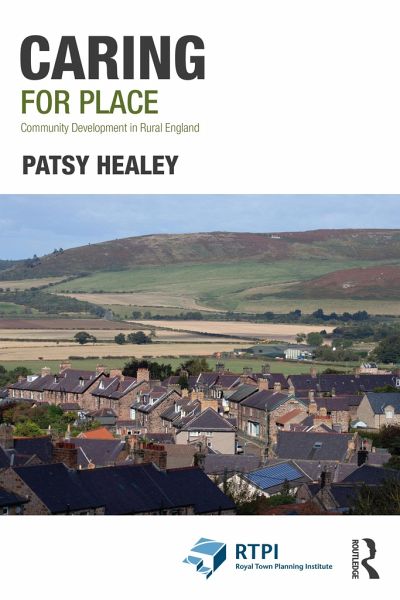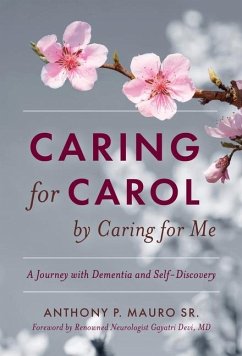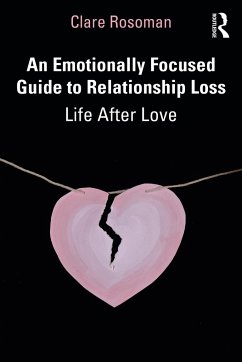"Whereas the managerial expertise of national governments fails to reflect the needs of the public, Patsy Healey authoritatively resurrects the spirit of planning in the building of community. Also at the higher levels of scale, planning should build upon the subsidiarity of community. Rather than ideology, this crucial mission is grounded in social experience and empirical wisdom".
Willem Salet, University of Amsterdam
"There is no planning scholar, past or present, who has more discerning antennae for political and sociological nuances than Patsy Healey. Case in point, this fine study of the micro-relations of power/cooperation involved in caring for place in a rural region in northern England where the author
herself lives.
Chapters 6, 7, and 8 are the analytical heart of the book, offering a useful schema for understanding power, and overall providing a brilliant, nuanced account of community-building amidst conflict, and of local relations of power and their interactions with the wider governance ecosystem.
While the forces of divisiveness are ever-present everywhere, Healey is interested in the extent to which civil society activism can actually nurture a sense of (political) community, and how initiatives originating in this activism can lead to the creation of what Healey terms 'public value'. In other words, she is interested in the transformative potential of civil society initiatives. And, having herself been involved in these efforts at community development over the past decade, she is able to argue not just normatively but also empirically for the possibility of a hopeful, open-minded, and tolerant ethic of care for a place-community."
Leonie Sandercock,
Professor in Community Planning, School of Community & Regional Planning, University of British Columbia, Vancouver"Patsy Healey brings her considerable intellect and a lifetime's scholarship to understand her own village in Northumberland in northern England. The result is a book brimming with insights into how we should care for the places in which we live. An important and valuable book."
John Tomaney,
Professor of Urban and Regional Planning, University College London"Written in an accessible style but still as intellectually sharp as ever, Patsy Healey's new book doesn't shy away from the difficult questions, but nonetheless remains firmly committed to an ethos of collective Caring for Place - and a firm belief in its emancipatory potential in current times"
Jonathan Metzger,
Professor of Urban and Regional studies, KTH Royal Institute of Technology"Patsy Healey reveals communities within communities, the pride and character of differing groups committed to bettering their places and environments. We see these placemakers navigate myriad networks and multiple layers of government. We see the tangle of priorities, preservation here, waste disposal there, along with those advocating growth wrestling with those ambivalent at best about tourism-and we learn much more."
John Forester,
professor of City and Regional Planning, Cornell University"In this excellent new book, Healey blends what she learned from (1) deep immersion in her hometown's daily life and place-community-building efforts and (2) her many decades of scholarly and professional work. The final product is an impressive and timely synthesis of academic knowledge and lived experience."
Jim Throgmorton,
Emeritus Professor, School of Urban and Regional Planning, The University of Iowa, and former Mayor of Iowa City"A refreshing and contemporary contribution to studies of rural place and community. The book provides an insightful account of the actual experiences of people engaged in shaping their own area; how they interact with others and how different initiatives present opportunities for community activists. In this way Patsy Healey highlights how much we need rural community action through recounting the activity discussed in the book. Yet the account also demonstrates the flaws in relying on civil society alone to provide the kind of fixes needed for the multiple challenges which rural places are faced with'.
Prof Gavin Parker,
Professor of Planning, University of Reading"This unique and thoughtful book is a must read for everyone who cares for their place, be it rural town or urban neighbourhood. The book's author, Emeritus Professor Patsy Healey OBE reflects on her recent involvement in community initiatives in her own small rural town while drawing also from a lifetime of academic leadership in studying places and place-making. The result is a highly readable and stimulating book on how people anywhere might come together to care for their place and to shape their shared futures, navigating the many pitfalls and embedded power structures and creating lasting public value. It shows how civil society activism can be transformative, but that realisation of its progressive potential requires a combination of continual struggle and great sensitivity. The insights and wisdom in this book will be important to anyone engaged in or interested in rural development."
Professor Mark Shucksmith,
Newcastle University, UK"Patsy Healey gives us a tour of civic activism in a small English country town that will be a rich resource for anyone interested in rural communities and civil society. Informed by her position as an academic and a local activist, deeply commited to caring for the people and environment of her 'place', Healey offers us an insightful series of immersive practice stories. Three local development initiatives are presented in an honest and respectful manner to explore the transformative power of civil society and how it interacts with wider ecosystems of governance.
The stories portray community as a pluriverse, not inevitably consensual or progressive in thought or action, and where neighbourliness may mean that some issues may be quietly circumvented in order to function together. There are heartfelt descriptions of the arduous work, dogged persistence and volunteer fatigue involved The energy and commitment of a few key bridge-builders, including Healey, shine through the narrative.
A work of empirical reflection and unique insight, this remarkable book advances understanding of local community activism, its battles and achievements, on 'a terrain of struggle'. It is a book about hope as a practice; the progressive potential of local civil society initiatives."
Jean Hillier,
Emeritus Professor, Centre for Urban Research, RMIT University, Melbourne, Australia"In
Caring for Place Patsy Healey brings an astute planning theorist's insight to bear on a decade of involvement with local development activity in the rural community she calls home. Optimistic but never uncritical, Healey proves an exemplary reflective practitioner, probing the work involved in organising a 'community-for-itself', capable of acting collectively to improve its present and shape its future. The result is a fascinating account of the challenges and opportunities of place-based, civic activism that advocates an inclusive sensibility, welcoming of difference and alive to the tangled webs of power relations that shape place. Arguing for the forms of public value that sustained and careful civic action can generate, the book should be required reading for all those interested in understanding the possibilities of community-led planning and development."
Andy Inch,
Department of Urban Studies and Planning, Sheffield University "Citizen initiatives represent a powerful democratic ideal - but they are a black box to most of us. We know remarkably little about their inner life, the way they negotiate relations with government and the corporate world, and how they contribute to society. Patsy Healy uses a lifetime of hands-on experience and her extensive knowledge of the literature to illuminate these vital questions. This elegantly written book packs a big intellectual punch and is recommended to anyone who is concerned about the state of our democracy."
Hendrik Wagenaar,
Professor and fellow, Institute of Advanced Studies, Vienna















